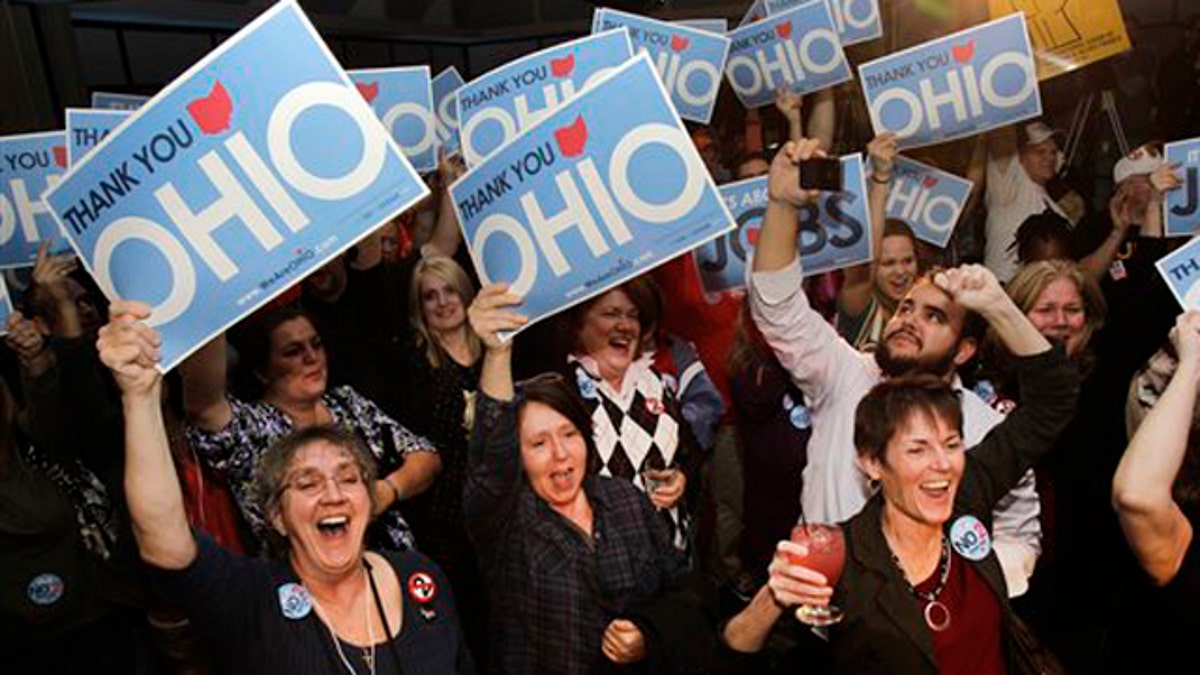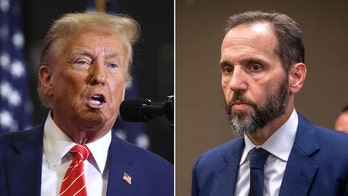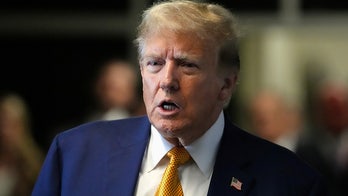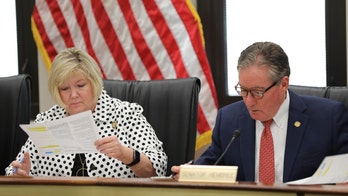
Nov. 8, 2011: Opponents of the Ohio union law cheer at a rally co-sponsored by the Cleveland Teachers Union and We Are Ohio in Cleveland. (AP)
Democrats and unions are hailing Tuesday's vote to repeal an Ohio law curbing collective-bargaining protections as the sign of an invigorated movement that could boost Democrats next fall.
That is, if they've got enough fight left in them.
The campaign to overturn the Republican-approved union law cost unions and their supporters millions of dollars. It followed another costly campaign in Wisconsin to recall state Republicans behind that state's anti-union law. And it precedes a new fight in Wisconsin to recall GOP Gov. Scott Walker.
With millions of dollars going from union coffers to preserve union benefits and protections, and punish those who oppose them, it's unclear whether the money and energy will be fully focused on President Obama's election campaign in 2012 -- as well as countless congressional races.
"They're tapped out," Republican strategist Ron Bonjean argued. "They're spending most of the dues on defending themselves."
The unions have deep pockets and are not literally tapped out.
But the Ohio election was by any measure costly. Financial reports filed in late October showed the pro-union group We Are Ohio spent more than $17 million -- and likely more in the final days.
By contrast, the group Building a Better Ohio which supported the law spent $6 million to defend it.
The bulk of We Are Ohio's budget came from state and national unions. The Ohio Education Association committed $4.75 million; the National Education Association contributed $2 million; the National Labor Table contributed $3 million; and the American Federation of State, County, and Municipal Employees contributed $1.5 million.
That's not small potatoes. According to data crunched by the Center for Responsive Politics, the NEA and its members committed $7 million toward the 2010 election; AFSCME committed $4.5 million.
Bonjean said spending so much on off-year campaigns in Wisconsin and Ohio must put the unions in a tough financial spot going into 2012.
Though unions contribute volunteers, not just money, in a campaign, Bonjean questioned whether they have the drive to fight as hard for Obama in a vital battleground like Ohio. He noted that while they defeated the union law, voters nevertheless voted against a key provision of the president's health care overhaul on Tuesday.
But the union-law turnout was impressive. More than 61 percent voted against the measure promoted by Republican Gov. John Kasich. Turnout was the highest ever for an off-year election in Ohio and poll numbers show voters rejected the law by wide margins in nearly every part of the state.
"What happened in Ohio last night matters everywhere," said AFL-CIO President Richard Trumka. "I think the governors in the other states ought to take heed of this and if they don't, they do so at their own peril."
Labor officials said the numbers point to trouble for GOP presidential candidates like former Massachusetts Gov. Mitt Romney and Texas Gov. Rick Perry, who embraced the anti-union measure on the campaign trail.
While the campaign was costly, the unions' victory could help their long-term finances. The union law they defeated included a prohibition on automatically charging public employees a fee even if they weren't union members.
We Are Ohio spokeswoman Melissa Fazekas told FoxNews.com the coalition is considering whether or not to stay together in advance of the 2012 elections.
She said the support for their cause came from voters of all partisan stripes, and noted that 17,000 people volunteered on behalf of We Are Ohio.
"People were outraged at the legislative process," she said.
Without commenting on union finances going forward, Fazekas noted that their support didn't just come from unions.
"It really was a grassroots effort and a lot of support from a lot of different sectors," she said.
Harold Schaitberger, president of the International Association of Firefighters, said unions would immediately turn their efforts to recalling Walker.
If unions can recall Walker, "Now you're talking about having significant impact in the 2012 election cycle for many politicians and putting two battleground states in strong play for our candidates," he said.
The Associated Press contributed to this report.




